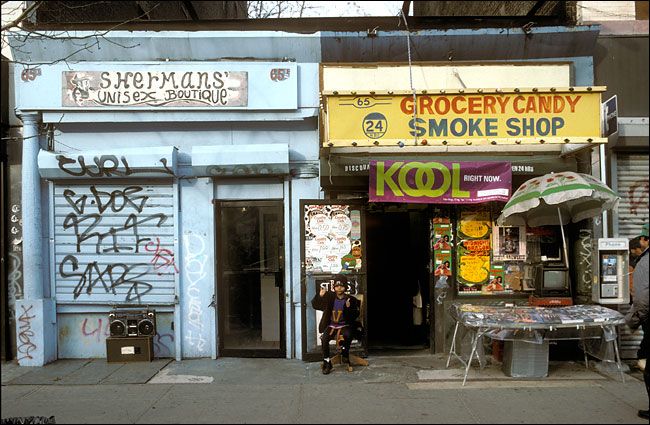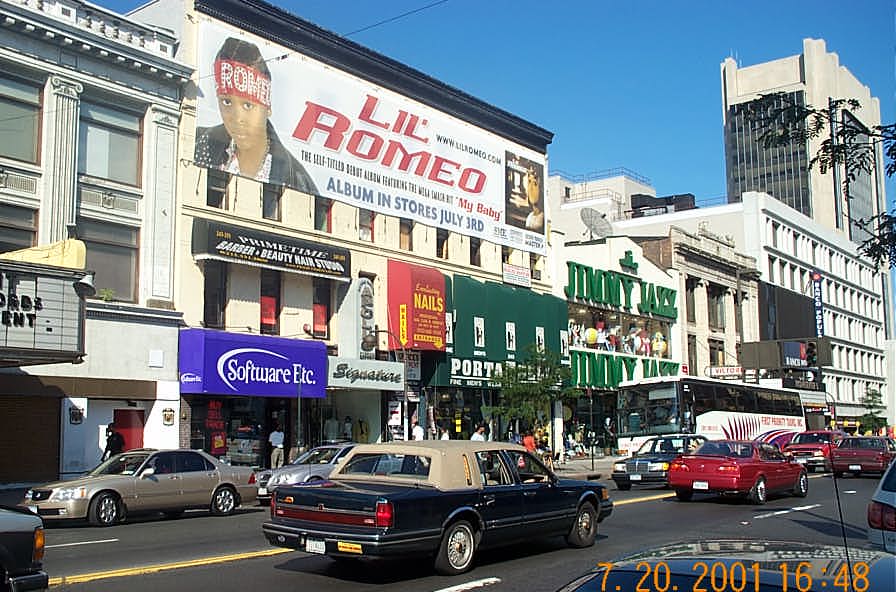Harlem
For the past couple of years, I have kept a volume of Daniel Boorstin's trilogy, The Americans, at my side. When you sit back and consider the amount of details and facts he puts in, seemingly effortlessly (which, of course, is always a sign of deep learning and great writing), you realize it's an amazing work.
This morning, I stumbled across his four-page explanation of the beginning of black Harlem, which occurred over the course of about twenty years, from 1904 (when blacks started arriving in great numbers due to a housing value crash) to the 1920, at which point Harlem was mostly black (at least west of Lenox Avenue, which served as a segregation line of sorts). Four pages is typical for Boorstin's treatment of a topic: you read for ten minutes and come away feeling you know everything important about it.
I rode through Harlem as a boy. For some reason (my father's sadistic sense of humor?), we had to ride through Harlem in a taxi. It was the 1970s; I was probably ten or so. I remember being stunned at the decay (even my frequent trips to Detroit hadn't prepared me for it).

Since then, I've heard a bit about the Harlem Renaissance of the 1920s, but didn't appreciate its breadth, until I read Boorstin's account this morning. "I can never put on paper the thrill of the underground ride to Harlem. I went up the steps and out into the bright September sunlight. Harlem! I stood there, dropped my bags, took a deep breath and felt happy again." That's Langston Hughes. "Harlem! Where else could I have all this life but Harlem? Good old Harlem! Chocolate Harlem! Sweet Harlem! Harlem, I've got you' number down." That's Claude McKay's character Jake in Home to Harlem (1928).
It was startling to read those passages then think back to my vague memories from that 1970s taxi ride. How did Harlem get so bad? I can't say, but a few points to consider:
1. It was never clean. Even during the Renaissance, prostitution, narcotics, and gambling were rife. There's a reason the Mafia battled over the turf.
2. Segregation didn't help matters. Blacks were forced to live in areas where landlords took advantage of blacks' limited housing options. Presumably (presumably), most of the landlords didn't live in Harlem, with the result that the inflated rents were sucked out of the neighborhoods into other parts of NYC where they were invested.
3. Boorstin repeatedly refers to blacks as the "indelible immigrant." Indelible. Boorstin doesn't strike me as a man who wrote recklessly. If he said indelible--many times--he meant it, which means he's basically saying the black man will always be an immigrant (though, if you adopt indelible's secondary meaning, it means the mark might be worn away with great effort). Every immigrant group--from nineteenth century Irish, to turn-of-the-century Italians, to today's Mexicans--has common traits: few assets, low income, more vice, higher crime rates. And that's Harlem, home of the "indelible immigrant." It's disturbing stuff, and I don't see how anyone could deny that the situation is the result of slavery and Jim Crow laws and general miserable treatment blacks have incurred at the hands of the white man. What other explanation is there? That blacks are intrinsically inferior? That's hardly the teaching of the Church or the opinion of anyone who has met a cultured black man.
It's a frustrating situation, and I don't have an answer. My apologies to anyone reading this and thinking, "Okay, say something we don't know Scheske." I realize my observations aren't unique or groundbreaking (blog writing simply isn't meant for contemplative and deep prose), but Boorstin's waxing description of early black Harlem, when combined with my childhood memory, drove into me the harsh reality of the problem. Don't worry, I won't soon be arguing for reparations, and I loathe any governmental answer to the problem. If we know anything, it's that governmental interference just makes the problem worse. In fact, if put on the spot, I'd probably argue that places like Harlem, like Detroit, would be better served if they were turned over to anarcho-capitalists to run. If anybody, the black entrepreneur, especially if backed by the white man's money (which would occur in these politically-correct times), could probably erase the indelible immigrant ink that is the black man's current status. Indeed, something like that might be taking place now, or is it just whitey forcing his way in?

